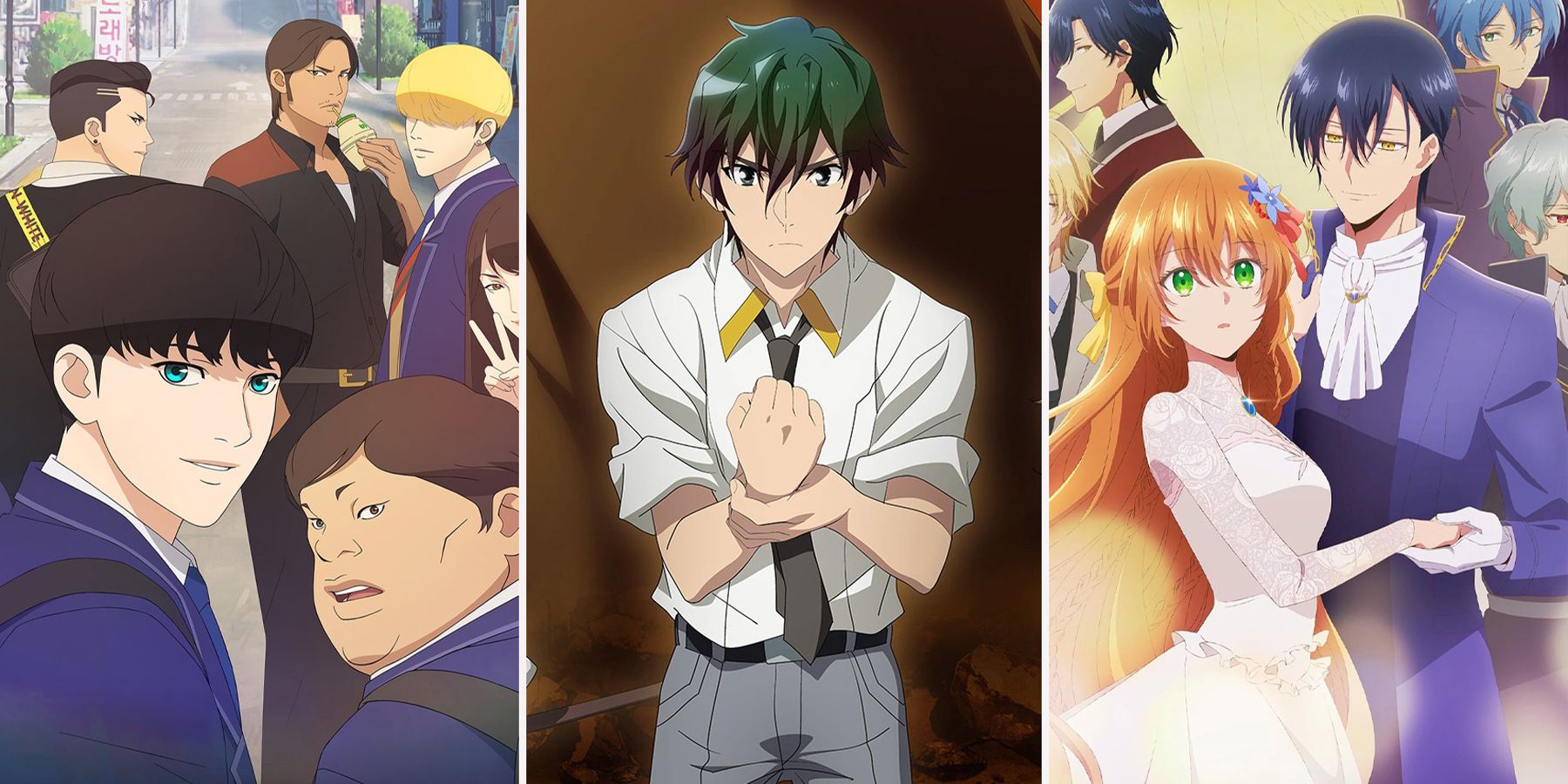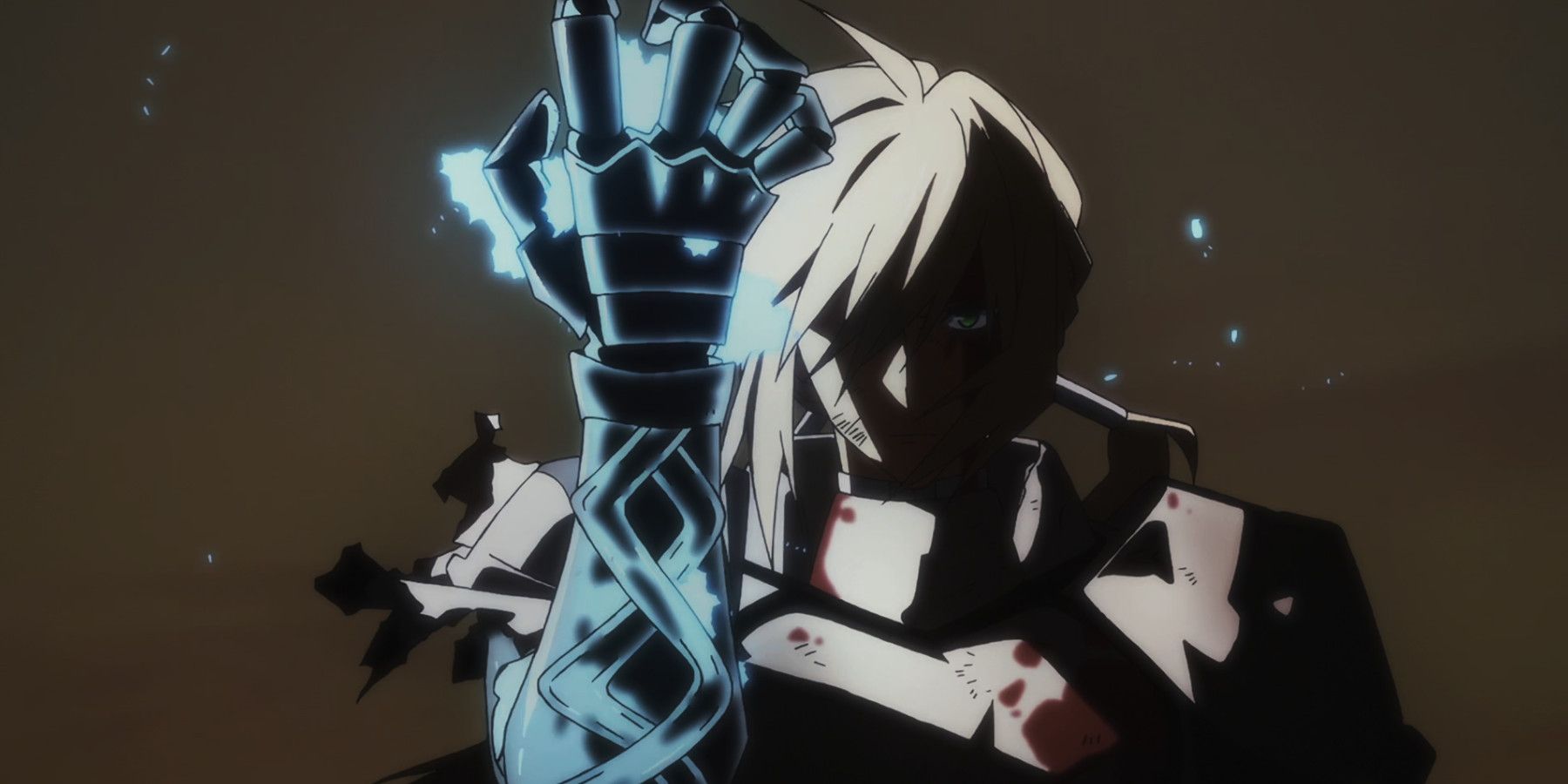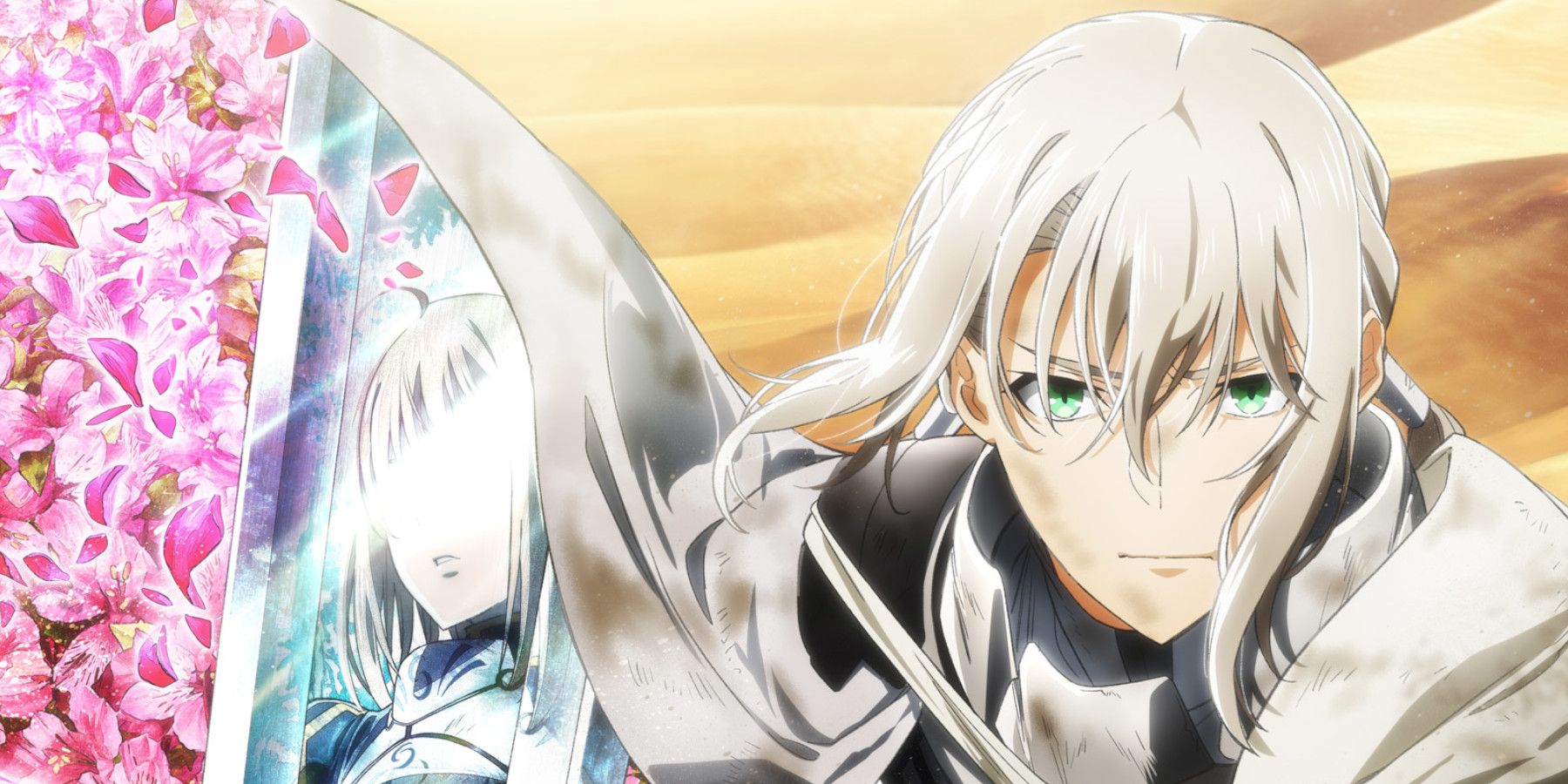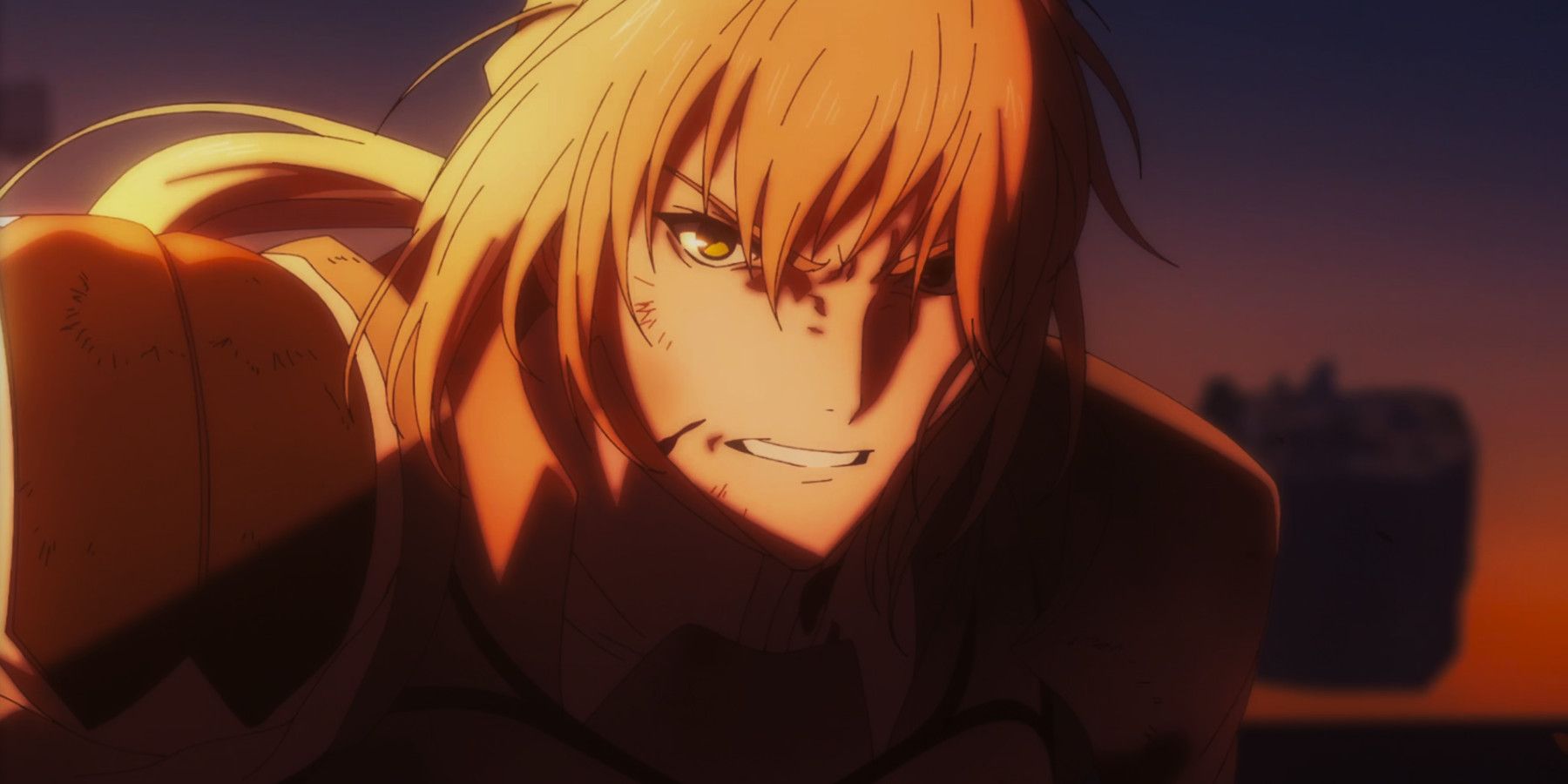Highlights
- Fate/Grand Order - Divine Realm of the Round Table: Camelot offers one of the best twists in the entire Fate Series.
- Bedivere's storyline as a human, not a Heroic Spirit, adds a mythic depth to Fate/Camelot.
- Kazuto Arai's directing in Fate/Camelot takes the film to another level with emotional depth and dynamic visuals.
Title(s) | Fate/Grand Order - Divine Realm of the Round Table: Camelot - Wandering; Agateram, Fate/Grand Order - Divine Realm of the Round Table: Camelot - Paladin; Agateram |
Director(s) | Kei Suezawa (Wandering) Kazuto Arai (Paladin) |
Studio(s) | Signal.MD (Wandering) Production I.G (Paladin) |
Release Date(s) | 12/5/2020 (Wandering) 5/15/2021 (Paladin) |
Warning: The following contains a major spoiler for the events of Fate/Grand Order - Divine Realm of the Round Table: Camelot - Paladin; Agateram, available for purchase through Crunchyroll.
Even by the standard of the most complicated Type-Moon properties, Fate/Grand Order is a tough sell, because engaging with it by any means other than the mobile game will likely leave one quite puzzled. Fate/Grand Order - Divine Realm of the Round Table: Camelot doesn't necessarily fix this problem, but it does offer an interesting story and perhaps one of the best twists in the entire Fate Series.
Fate/Camelot - as it shall be referred to for the rest of this piece - is a film duology, the first part of which was animated by Signal.MD while the second was animated by Production I.G. We previously wrote about them back in 2022, calling Camelot one of the most ambitious Fate projects and by far two of the best films in the franchise, but that piece might not have gotten to the core of why that is.
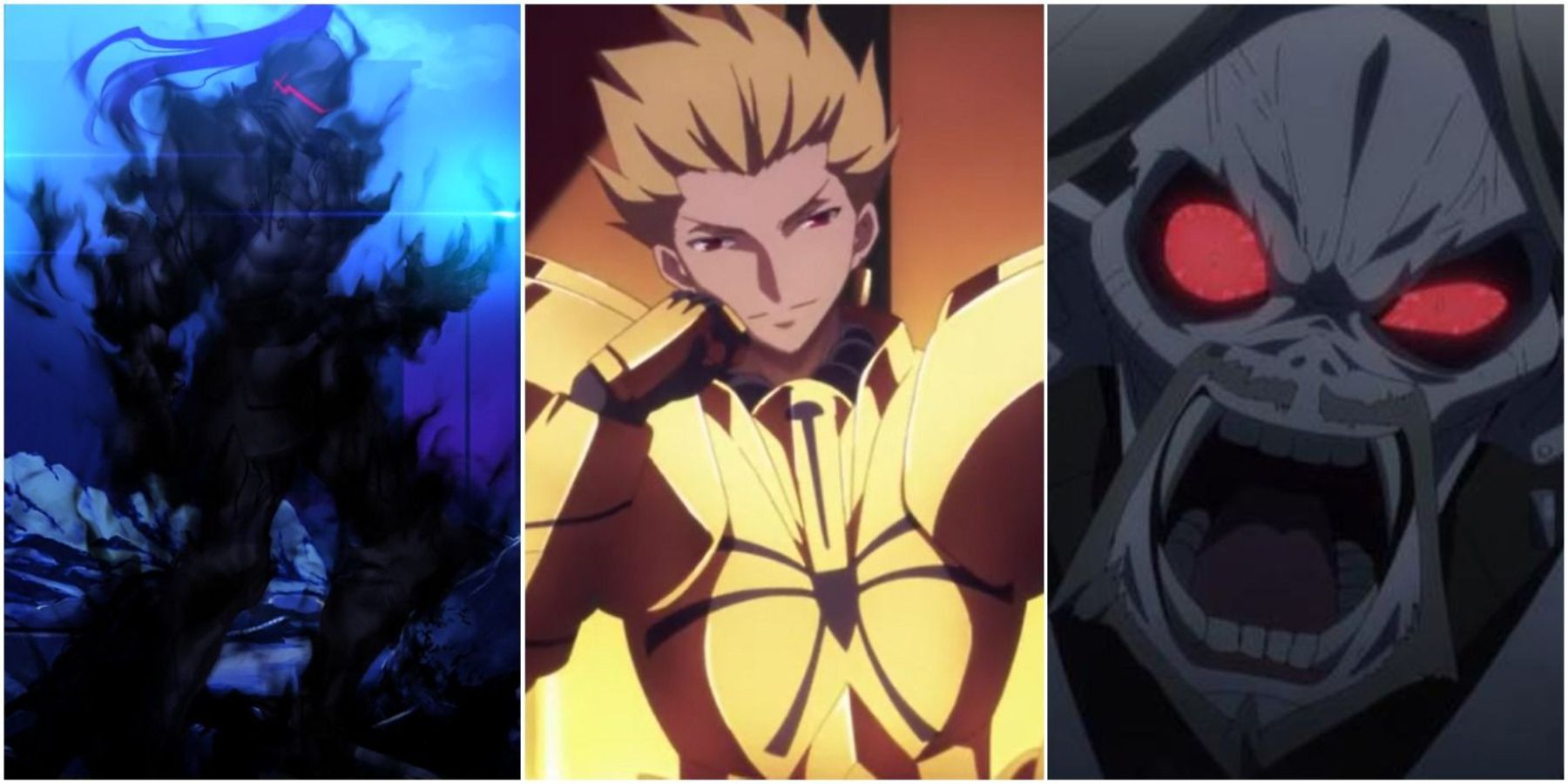
Fate Series: 27 Strongest Characters From All The Anime Shows & Movies
The Fate Series features some of the strongest historical and fictional figures. Even among such skilled fighters, these Servants are the strongest.
Understanding Camelot (Mostly)
The trouble with recommending FGO adaptations to newcomers is that they never feel designed for anyone other than pre-existing fans of the game. For those to whom gacha games hold little appeal, the requisite homework likely holds even less, but for fans of other Fate anime, that need not be a barrier if one is willing to forgive certain quirks.
Fate/Grand Order's simplest logline is that the world is ending, and an organization known as Chaldea sends Fujimaru Ritsuka (the player character) through time to stop it. By visiting singularities through human history, retrieving the Holy Grails within them, and otherwise battling enemy Servants, Ritsuka and his Demi-Servant Mash Kyrielight correct history.
No doubt, there will be more questions beyond that stripped-down premise. Truth be told, however, none of it has any bearing on what makes Fate/Camelot a great story at the end of the day. What matters is the story of Sir Bedivere, a Knight of the Round Table, and a fantastic character given even greater depth by voice actor Mamoru Miyano.
What Camelot is Really About
Camelot follows Bedivere's pilgrimage through Jerusalem in 1273, where the singularity has devastated the land and a glimmering Holy City has spawned in its center. Refugees flock to its walls for a chance to be granted salvation, but only a few are allowed entry, while the rest are culled. Despite this barbarism, the other Knights of the Round Table remain loyal to their king, a twisted version of Arthur who calls themself the Lion King.
After a confrontation with Sir Gawain, Bedivere meets Chaldea's operatives, and they join forces, retreating to gather allies strong enough to stop the Lion King. This is what most of the first film - Wandering; Agateram - entails. The wandering knight journeys in search of direction, grappling with the grave mission before him; to put an end to his king's cruelty. Along the way, he interrogates his fellow knights, gleaning their unique reasons for following the Lion King.
The second film - Paladin; Agateram - is the bombastic payoff to the first film's patient exposition. Two-thirds of its 90-minute runtime follows the combined assault on the Holy City while Bedivere, Ritsuka, and Mash rush to confront the Lion King. After an onslaught of incredibly animated battles, the height of the film comes when Bedivere stares down his king, and before the big twist, it's worth examining our hero closer.
Why We Care About Bedivere
In Arthurian legend, Bedivere was the one tasked with returning Excalibur to the Lady of the Lake after Arthur's final battle. Two times he failed to toss the sword, knowing his king would perish if he did. Bedivere would break his code and lie to his King, but Arthur always saw through it, and on the third attempt, he finally returned the sword. He is a fascinating hero, wrapped up in grief and remorse, the full extent of which is hidden from the viewer for much of the story.
Compared to his fellow knights, Bedivere is unremarkable, very much by design. The one unique quality denoting him as a Servant is his Noble Phantasm; his prosthetic arm, Airgetlám. He acknowledges his lack of talent and power, yet his pride as a knight stems from the trust Arthur placed in him despite his shortcomings. He's a uniquely sympathetic underdog who carries himself differently than most Heroic Spirits in this or any other Fate story, and there's a good reason for that.
He's Not a Heroic Spirit
Before Arthur, Ritsuka, and Mash, Bedivere confesses to having deceived his friends this entire time with help from Merlin's magic. He is not a Heroic Spirit, but the genuine Bedivere, from a timeline where he failed to return Excalibur to the lake, even on the third attempt. Most shocking of all, his prosthetic arm is Excalibur in disguise, which he intends to return to his king to make amends for his greatest sin.
At this moment, everything about Bedivere clicks into place, and his accomplishments become that much more impressive. Whereas before, his weaker status could be chalked up to being a lower-tier Servant, this twist shatters that idea and proves what a true hero he is despite his flaws. He's the ultimate underdog; a human who faced off against Gawain, Mordred, and Tristan in battles that might have ended most humans.
Why This Twist Works So Well
On the whole, Servants are not supposed to be easy for humans to so much as scratch, let alone defeat in battle. The writers get to have their cake and eat it too, because in such cases when he arguably should have died, it could be the result of his skill, his prosthetic arm, or Merlin's aforementioned magic. Whichever way one cuts it, stripping away Bedivere's status as Heroic Spirit takes his story and turns it into something so much more mythic, like a true Arthurian legend.
Additionally, the buildup to this twist becomes even more appreciable on rewatch. For example, little hints like Bedivere accepting food despite Servants not needing to eat to manifest. More importantly, Arash and King Hassan - the two most critical characters who impress upon him the weight of his mission - heavily imply that they know the truth about Bedivere.
However, it is Kazuto Arai's directing that takes this scene - and the film as a whole - to another level. It's the little touches, like the way Mash's expression becomes consumed with sadness as if she's realized his secret before the words are even spoken. And it's bigger things like Kai Ikarashi's incredible, ceaselessly dynamic, 45-second cut showing Bedivere's mad dash toward King Arthur (watch here). Keita Haga and Hideyuki Fukusawa's emotional score is the cherry on top.
Despite how integral Servants are to the premise, Fate loves giving some of its most satisfying character moments to regular humans triumphing over them. Getting the advantage over Masters and Servants alike is what made Kiritsugu Emiya so compelling in Fate/Zero. It's the same reason Shirou Emiya's arc in Fate/Stay Night is one of the most underrated among anime heroes. As for Fate/Grand Order Camelot, Bedivere's beautiful final stand puts him right up there with Shirou.
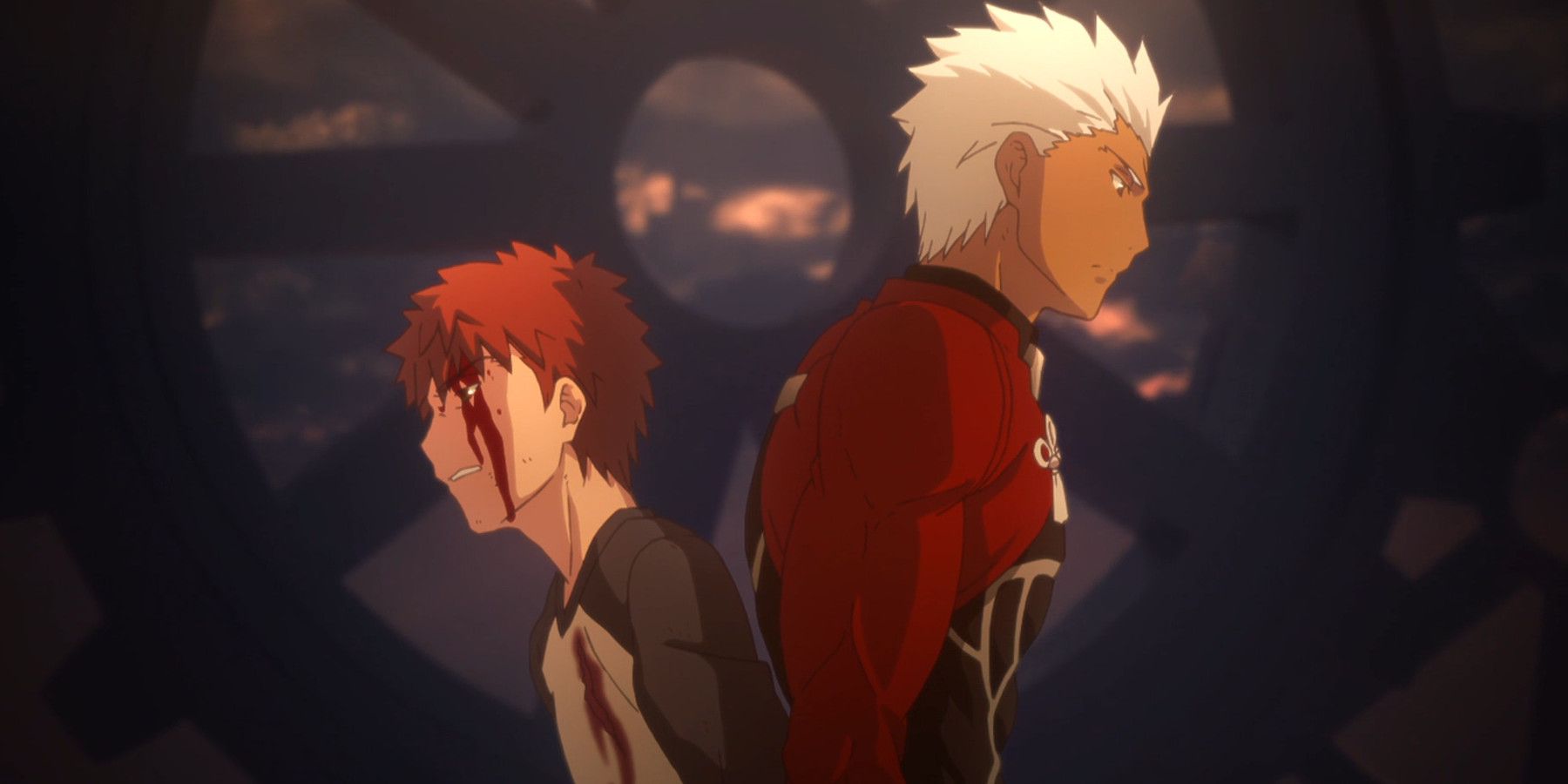
Does Fate/Stay Night: Unlimited Blade Works Still Hit As Hard?
It's the series that gave Ufotable a somewhat misleading reputation, but upon reflection, is Unlimited Blade Works all it's cracked up to be?
